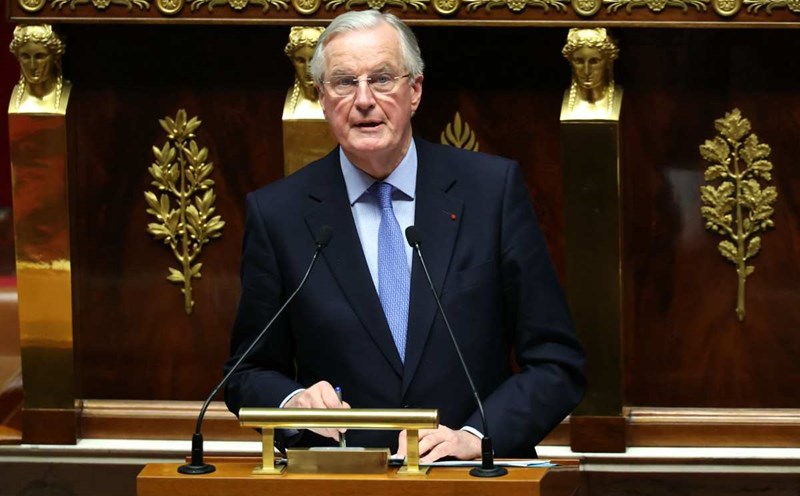In a speech on December 5, French President Emmanuel Macron affirmed that he would continue in office until the end of his term in 2027, rejecting opposition demands to resign. He also thanked Mr. Barnier for his contributions and accused the far-right and far-left of trying to overthrow the government.
The vote of no confidence in Mr Barnier, which took place on 4 December, received overwhelming support from opposition MPs, just three months after his appointment. It was the first time in more than 60 years that a French government had been toppled by a vote of no confidence.
Finding a replacement for Mr Barnier is a major challenge for Mr Macron. According to the BBC, the French President is having to convince all three blocs of the left, the centre and the far right to accept the new government. He is scheduled to meet political leaders on 6 December and said he will soon announce a new prime minister.
Responding to Mr Macron's remarks, Marine Le Pen, former leader of the far-right National Rally (RN) party, asserted on social media that a vote of no confidence was "a constitutional act in the Fifth Republic".
The no-confidence vote was proposed by the left-wing coalition New Popular Front (NFP) and the RN party, with 331 MPs in support, far exceeding the 288 needed. Although Mr Barnier has resigned, Mr Macron’s position is not affected.
It is not yet clear who will be the new prime minister. Potential candidates have been rumored to include Defense Minister Sebastien Lecornu, Interior Minister Bruno Retailleau and centrist politician François Bayrou. Mr Macron said his immediate priority would be to pass the 2025 budget.
It is unlikely that a new government will be formed before December 7, when world leaders, including US President-elect Donald Trump, will attend the reopening of Notre Dame Cathedral in Paris.











